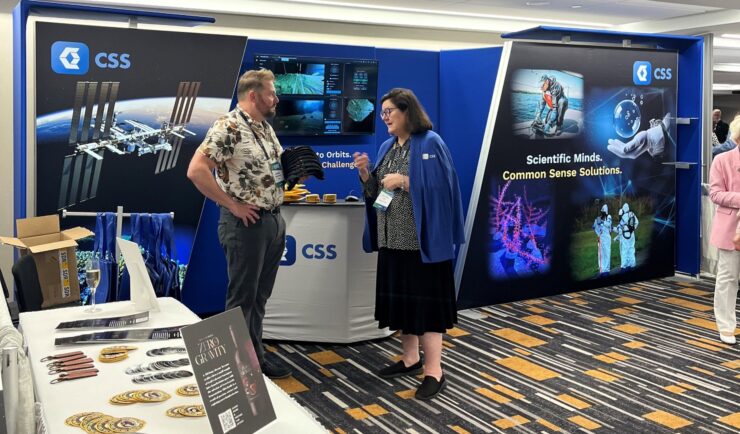- Success Stories
- Environmental Resource Assessment & Management
Studying Mesophotic Coral Health

Mesophotic coral can live at depths of 500 feet below the ocean surface. Even at this depth, some of the mesophotic corals in the Gulf of Mexico were affected by the Deepwater Horizon oil spill in 2010. Our coral scientists supporting NOAA’s National Centers for Coastal Ocean Science are studying the extent of this impact.
Three of our employee owners participated in a mission to extract the corals from the Gulf of America (formerly Gulf of Mexico) that were then transported to laboratories in Galveston, Texas, Gainesville, Florida, and Charleston, South Carolina. Once the Charleston specimens were housed in custom-made tanks, our scientists began studying and caring for the corals. They feed the colony multiple times daily, and study their growth and reproduction. In an effort to restore the damaged coral colonies in the Gulf of Mexico, the team is studying how to maximize growth and outplanting at a larger scale.
See More CSS Insights

International Space Station Research and Development Conference
CSS recently attended the International Space Station Research and Development Conference in Boston, Massachusetts. This conference is a gathering of professionals conducting research and developing technology in the microgravity environment of space. CSS was a gold sponsor for the conference and co-hosted a session entitled Payload Pandemonium along with the director of payload operations for…

Tracking Fish Through Restored Habitat
Poplar Island, a severely eroded remote island in the Chesapeake Bay, has been the site of a major restoration effort supported by CSS client, NOAA’s National Centers for Coastal Ocean Science (NCCOS), and their partners, Army Corps of Engineers, and the Maryland Department of Transportation, Maryland Port Administration. This massive effort utilizes dredge sediment from…

Providing Technical Assistance for Reporting Francis Scott Key Bridge Collapse
Following the Francis Scott Key Bridge collapse in March 2024, high-profile news outlet, CNN, contacted NOAA’s Office for Coastal Management seeking ship traffic data and expertise from the Marine Cadastre team. CSS employee owners supporting the Marine Cadastre project (through a subcontract with Lynker) are the team’s data experts and were the most qualified to…
